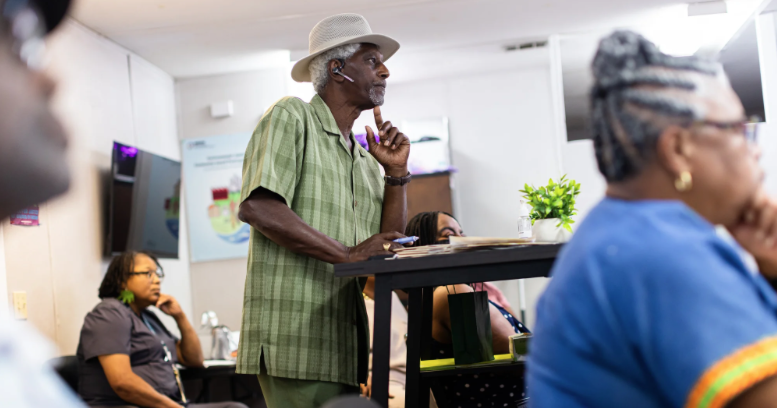Aleena Oakley, NCEJN
Hi! My name is Aleena Oakley; I’m a lifelong NC resident with roots in the Charlotte area, and I have been working with NCEJN and the Concerned Citizens of West Badin (CCWBC) to help further their work for environmental justice.
Last month I, along with community members, environmental justice advocates, and state officials gathered for a day of education and advocacy. The day began with a community tour of West Badin, followed by the Governor’s Environmental Justice Advisory Council meeting at Stanly County Community College. Residents and concerned citizens led the way, sharing their personal stories and showing the very real impacts of the contamination on their daily lives. We traveled through areas affected by Alcoa’s operations, revealing contaminated sites and homes struggling with the environmental pollution left behind. For me, seeing the locations firsthand where materials had been dumped, where the landscape had visibly changed, and where families had been living for generations brought a new level of understanding to the reality of the situation.
After the tour, the Governor’s Environmental Justice Advisory Council meeting provided a place for further discussion. The meeting at Stanly County Community College featured a public comment period where residents and advocates could voice their concerns directly to council members. Many community members gave comments, speaking passionately about the ongoing environmental injustices in West Badin, listing health issues, contaminated soil, and a lack of accountability from Alcoa.
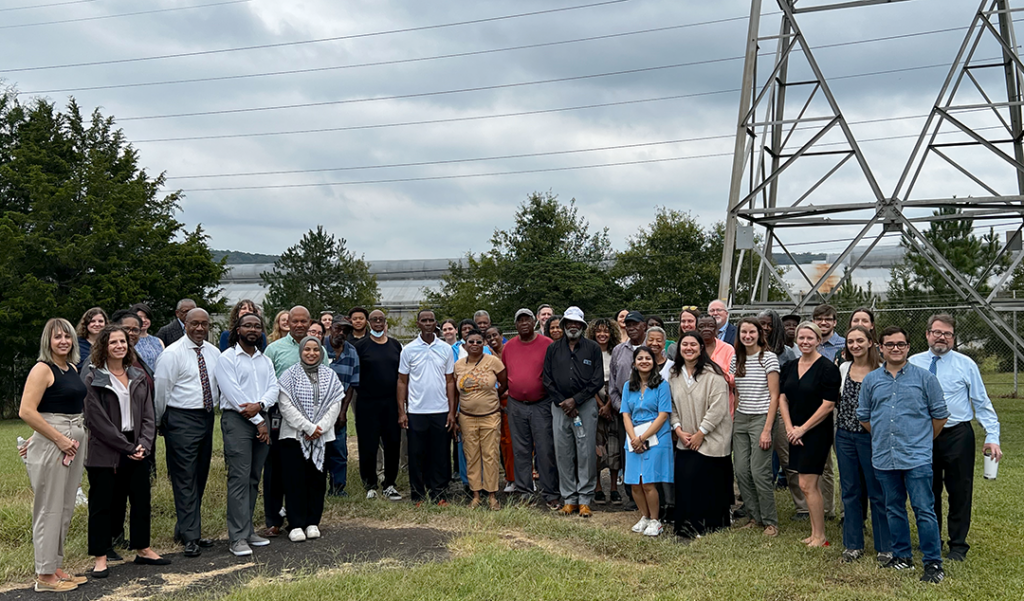
Residents, some of whom had been fighting for decades, shared the realities of living with contamination in their community. Their words were not just calls for awareness of the issue but demands for action—asking the state to step in and hold Alcoa accountable for the environmental damage that continues to haunt West Badin. Former Alcoa employee David Burns remarked, “It hurt me because out of the whole ten years I worked at Alcoa, I never knew that this was happening… This needs to be a quick process to get something done because there are lives at stake.” Allies from numerous organizations, including NCEJN staff Katarina Caskey, Richard Lindayen, and Naeema Muhammed (a Governor’s EJ advisory council member), shared background and comments in support of the community’s demands. The meeting served as a space to bridge between state officials and the residents they serve, but it was clear that there is still work to be done.
The CCWBC held a meeting later that same week, which brought together community members and environmental justice advocates to discuss what they know about Alcoa’s dumping practices and identify which areas in Badin might still be affected. The stories shared by longtime residents were insightful in mapping out contaminated sites around West Badin and beyond. Many concerned citizens shared personal memories and knowledge that reveal just how much environmental damage Alcoa’s operations have caused over the years and how deeply Alcoa is tied to the town of Badin.
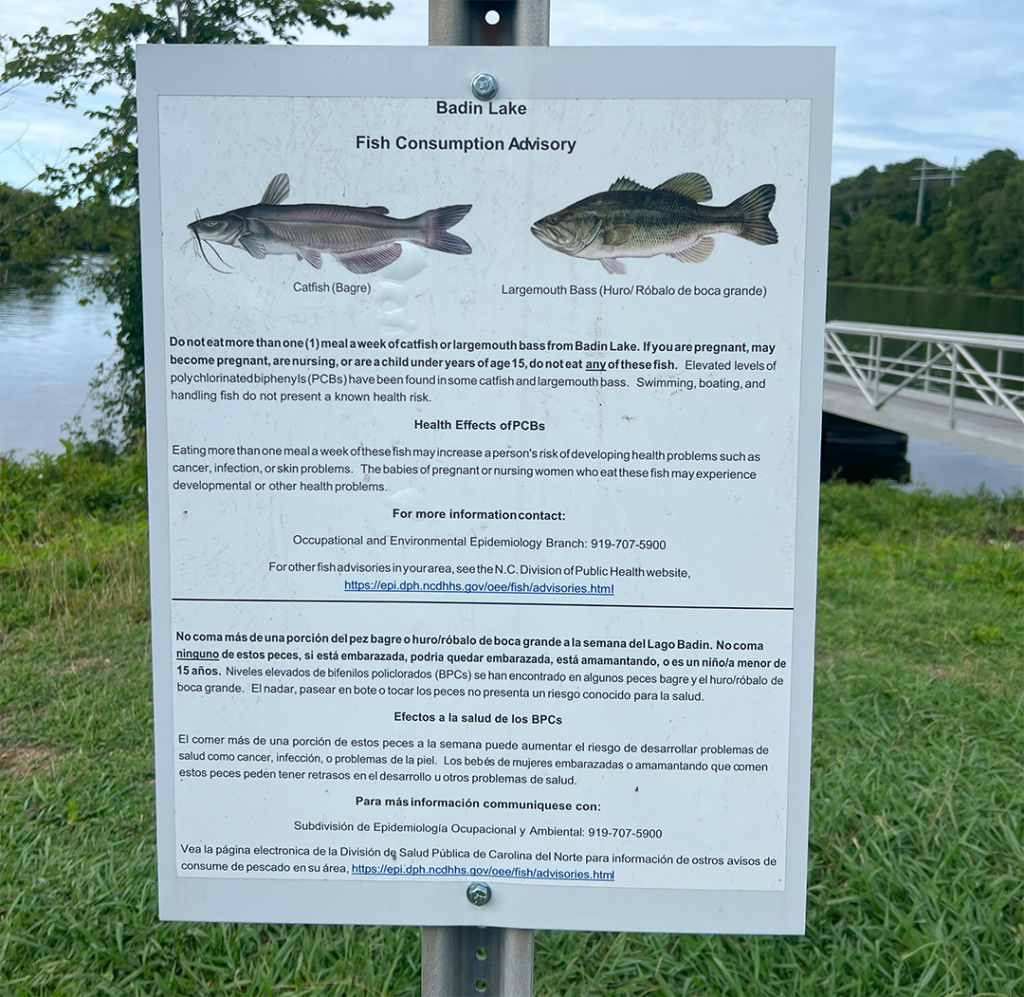
Several folks recalled seeing trucks dumping materials in remote parts of town or noticing changes in the landscape that made them suspect contamination. Many of these dumpsites were close to home and in the backyards of some residents in West Badin, right around the site of the former Alcoa factory. These shared experiences, especially with former Alcoa employees, were key to pinpointing spots that need to be investigated more deeply for testing. Most of the identified sites had not been adequately tested during past surveys conducted by NC DEQ.
Several dumping areas and sites with potential contamination were identified and mapped during this meeting. Concerned citizen Richard Leak stated, “I enjoyed the mapping session and the EJ advisory council meeting. To be able to speak to government officials and see the interest they had in the things we were saying, to see new faces on that panel and to be able to discuss some of the things we’ve been concerned about, this is a step in the right direction.” This progress is a testament to the CCWBC’s unwavering determination to hold Alcoa accountable. It’s the beginning of gathering the confirmation needed to support what the community has known for a long time —that Alcoa left a mess behind, and the people of West Badin have been living with the consequences for decades.
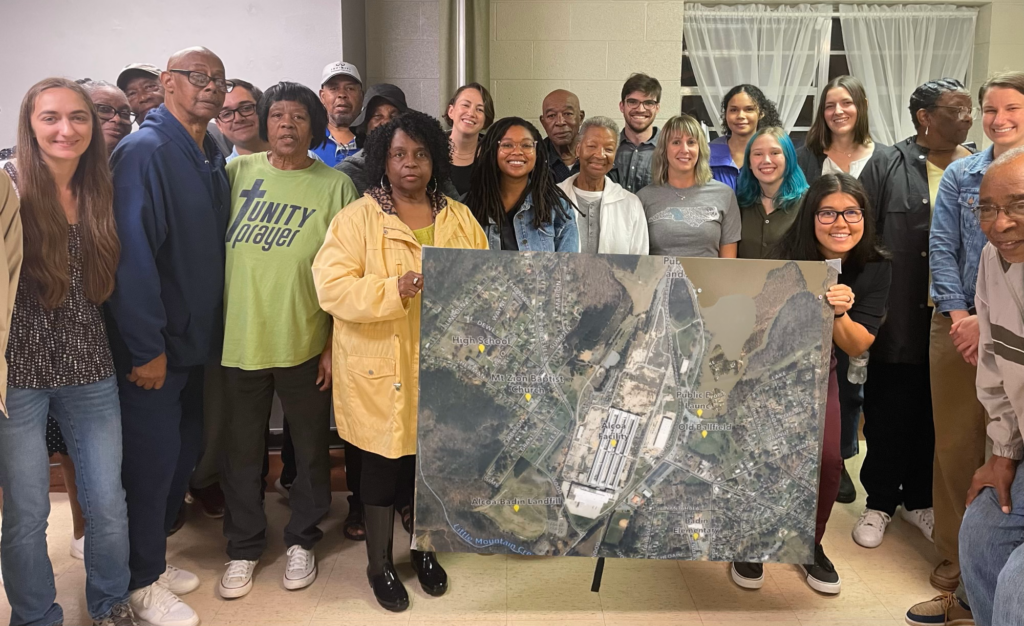
The stories shared in these meetings remind me of the importance of collective action and awareness. Valerie Tyson, a concerned citizen of West Badin, shared, “Everything we did over those two days was for folks to get a better understanding of what we were hearing, what we were seeing, and what we were talking about. We don’t want pity; we want people to know… and the only way they’ll know is if we speak it.”
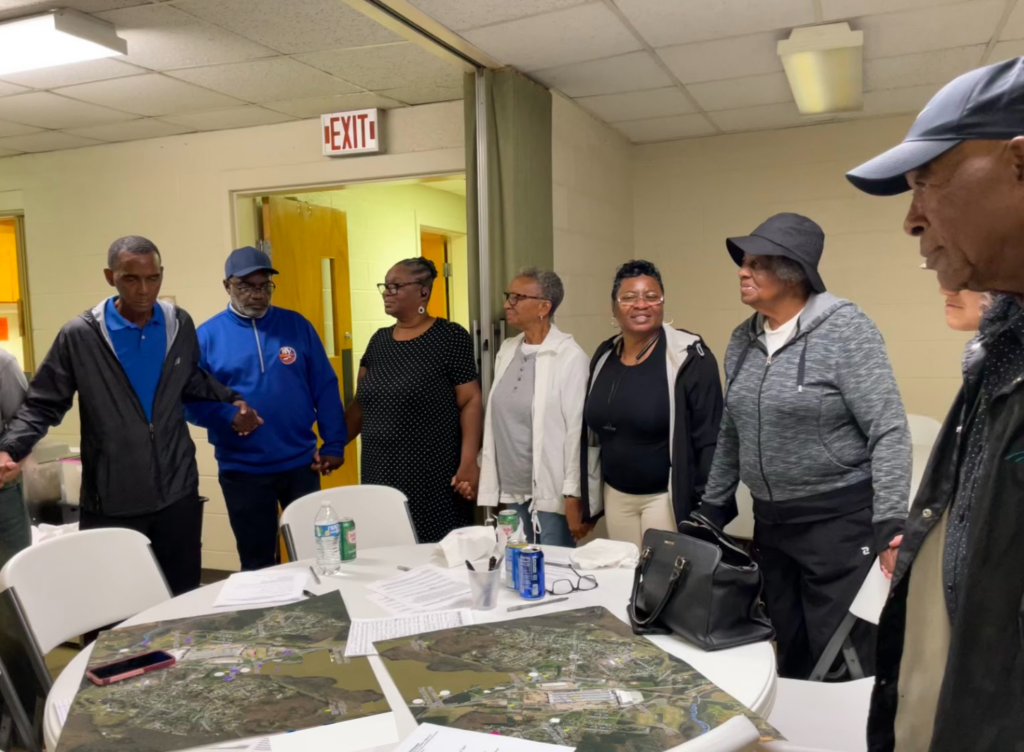
Together, we can ensure that the voices of West Badin are heard loud and clear in their ongoing fight for environmental justice. Sign the petition to support the campaign and receive updates!
For more information:
–The Long, Complicated Legacy of a North Carolina Company Town
–SCSJ Commends EJAC for Addressing West Badin Pollution Concerns

